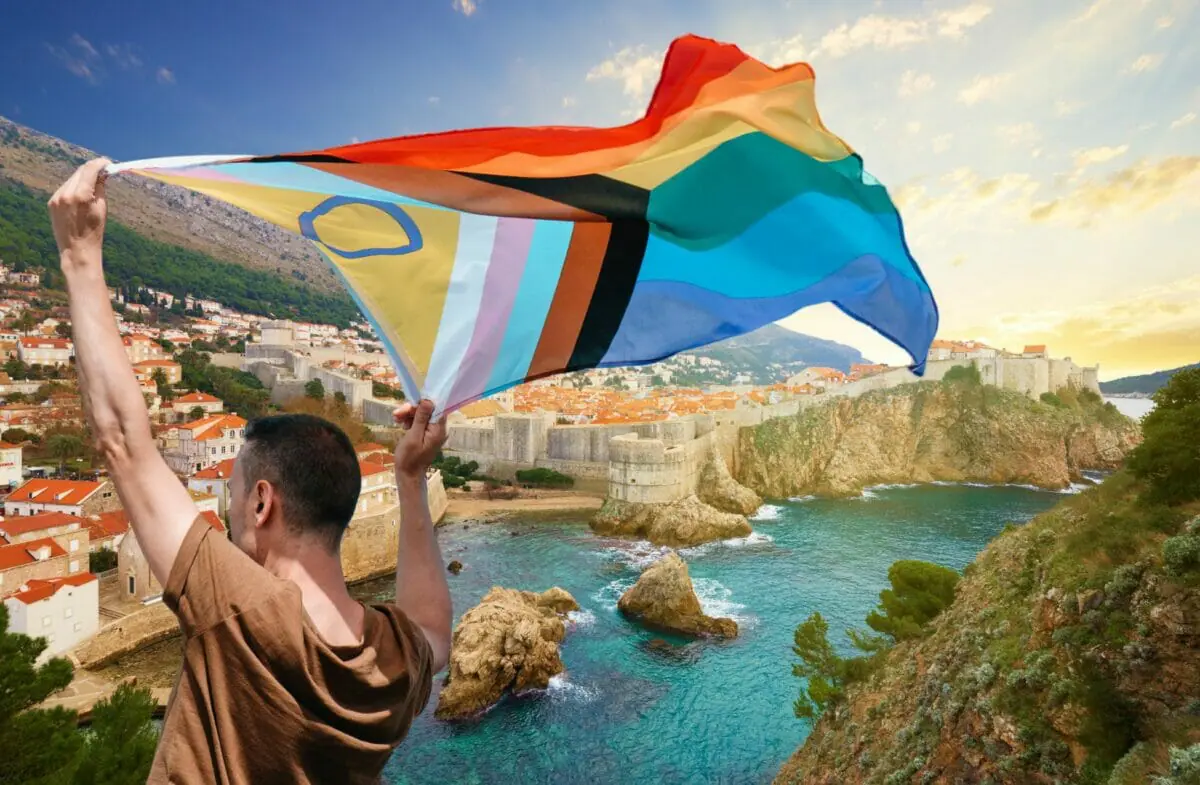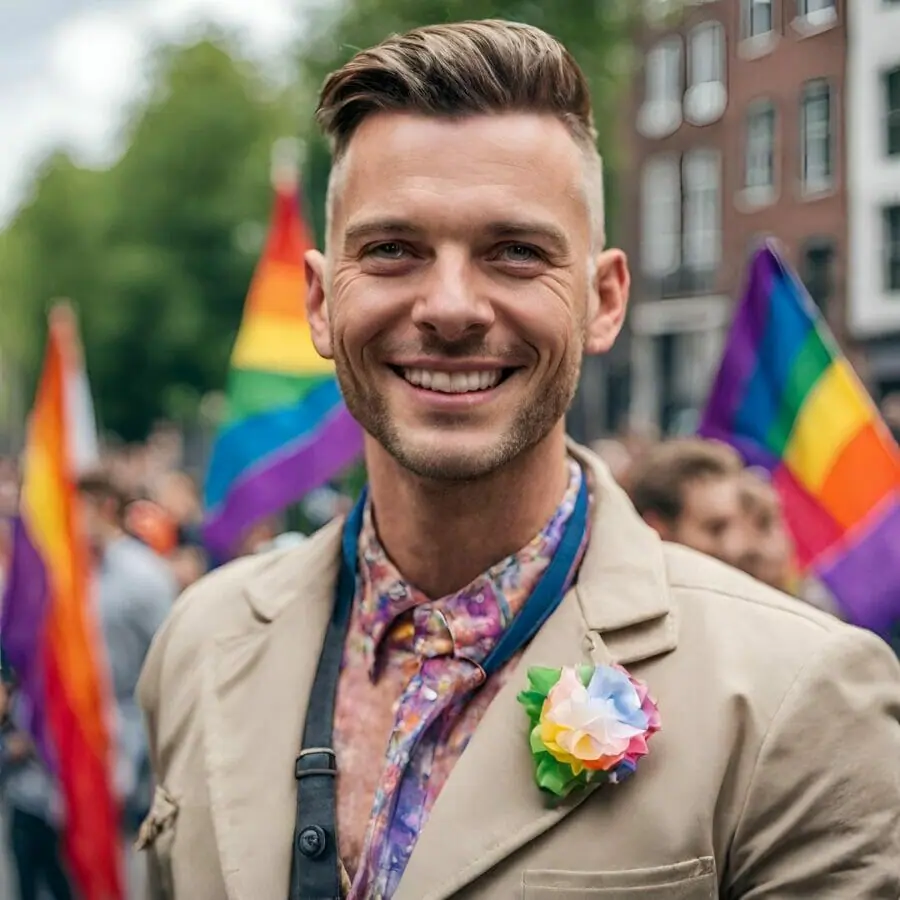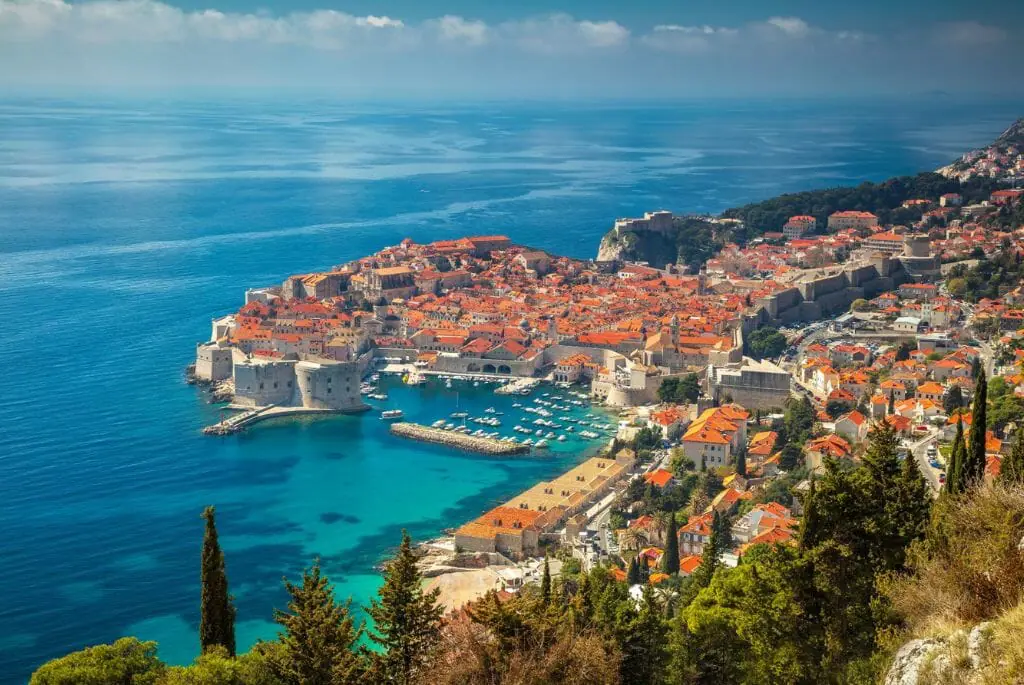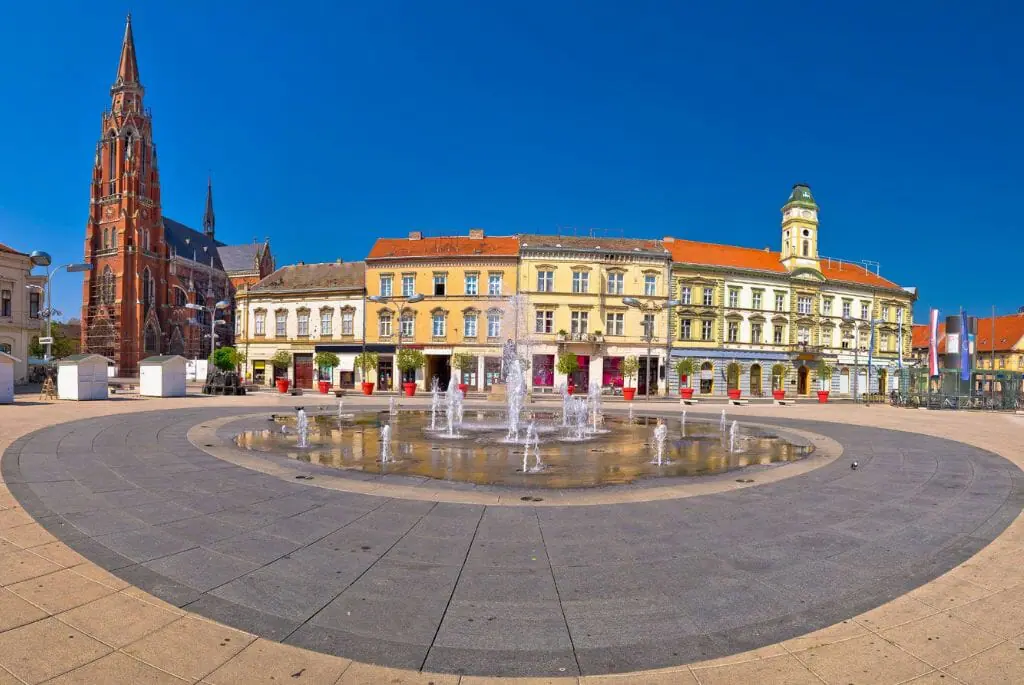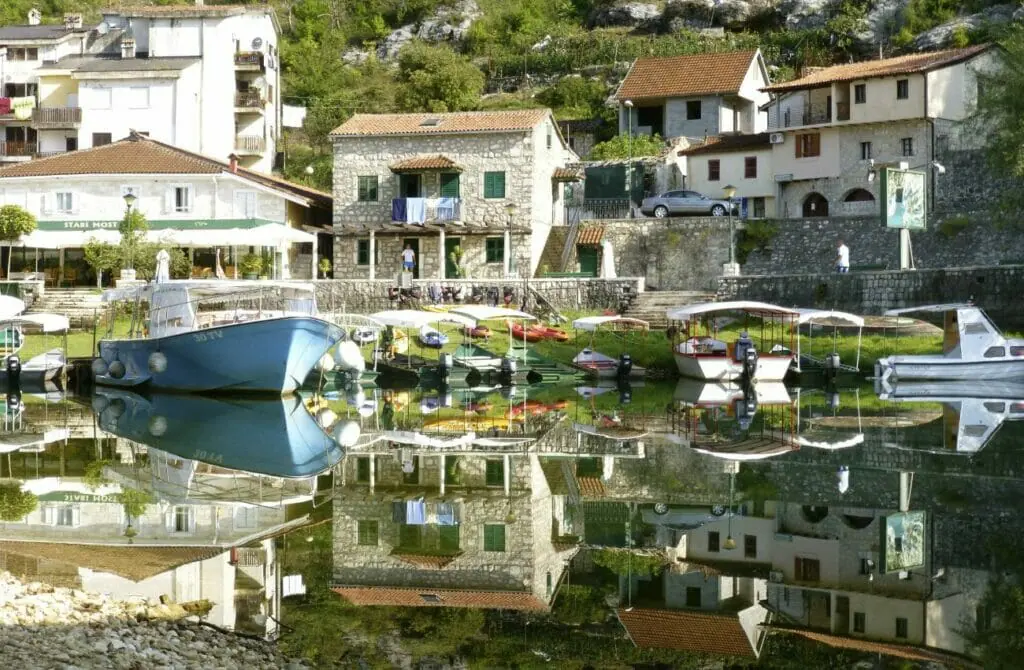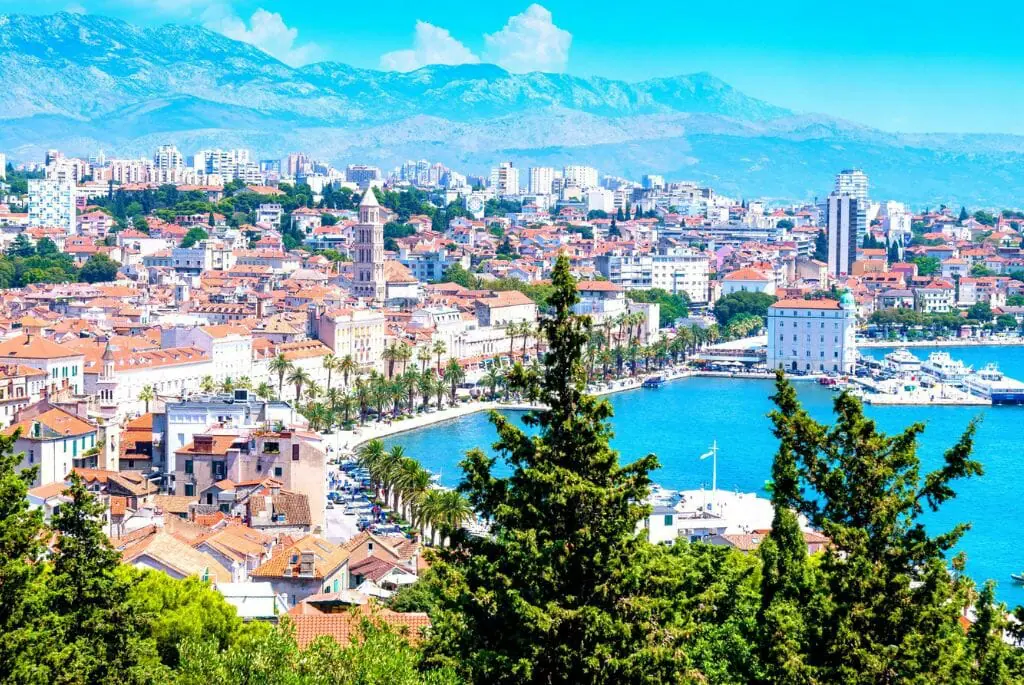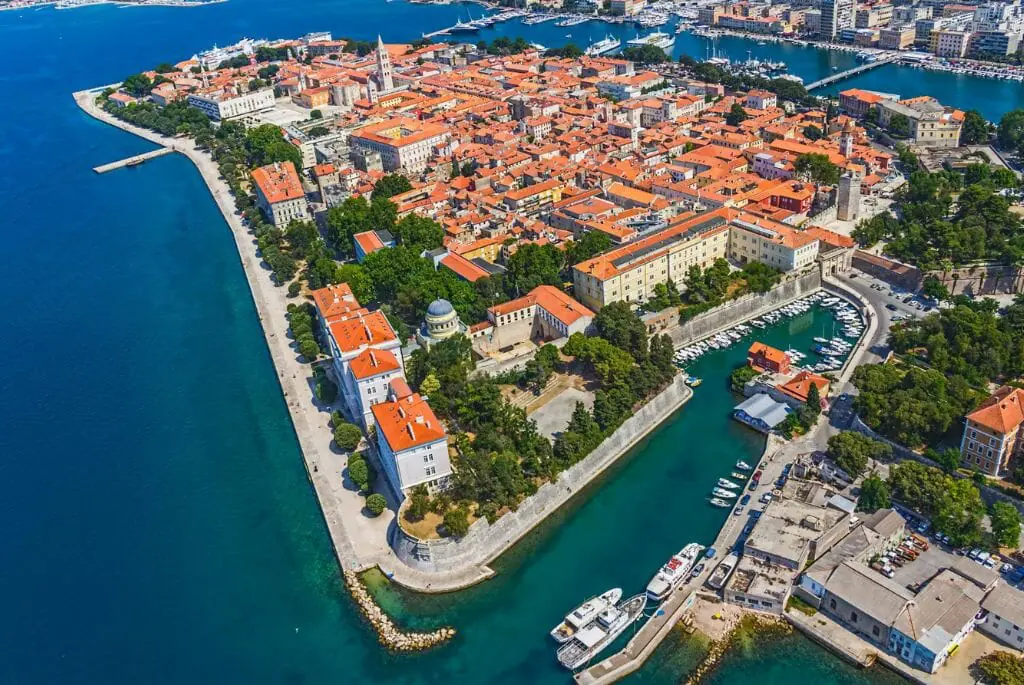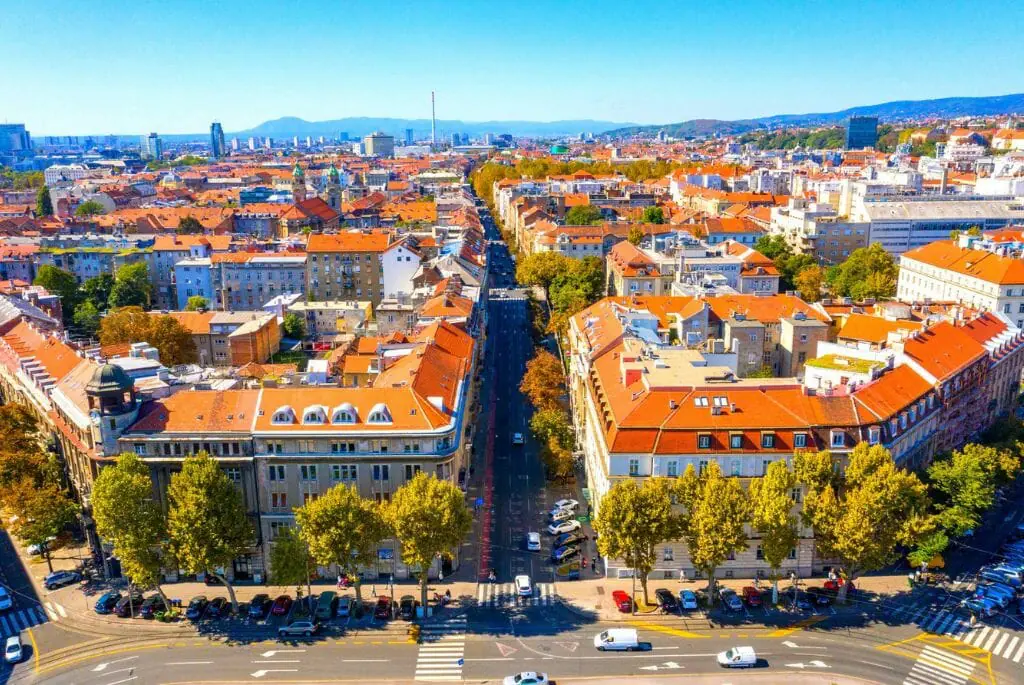Zdravo, intrepid explorers! If you thought Europe’s allure resided only in its well-trodden west, you’re in for a luminous surprise. Venture to where the azure waters of the Adriatic kiss a land pulsating with rich history and vibrant life—welcome to Gay Croatia.
With its intricate political tapestry, this Balkan gem has been weaving a fascinating tale of resilience and progress for its LGBTQ+ denizens. From grappling with conservative traditions to embracing more progressive ideals, Gay Croatia stands today as a testament to what the power of community and love can achieve.
The electric nightlife of Gay Croatia can only be likened to the dazzling display of the sun as it sets over its iconic Dalmatian coast. Split and Zagreb lead the charge with bars, clubs, and festivals that are not just gay-friendly but effervescent celebrations of queer culture. As the moonlight dapples the cobbled streets, every corner seems to hum with stories, music, and laughter—a siren call to those who seek both revelry and refuge.
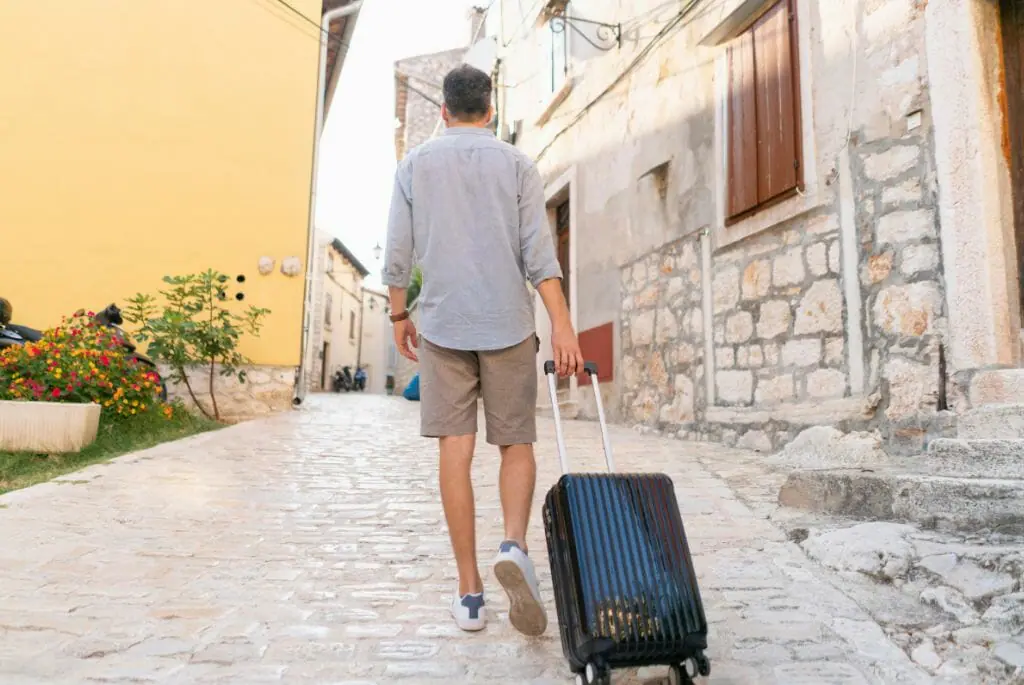
Yet, the essence of Gay Croatia goes beyond just the beats of its nightlife. It thrives in the daily lives of its queer citizens: from couples wandering hand in hand through Dubrovnik‘s ancient alleys to spirited discussions in Rijeka‘s cafes about what it means to be queer in modern Croatia. These stories of hope, courage, and unabashed love form the lifeblood of a country that’s still finding its stride in the global LGBTQ+ narrative.
So, why does Croatia, with its kaleidoscope of islands, ancient cities, and passionate people, magnetize LGBTQ+ souls? Maybe it’s the blend of old-world charm with a fervent hope for an inclusive future. Or perhaps the promise of both serenity and vivacity in one breathtaking package. Whatever the lure, Gay Croatia beckons with open arms, promising memories that will linger long after the journey’s end.
Pack those bags, dear wanderers, and set sail for Gay Croatia—a land of dreams, dappled sunlight, and dances that last till dawn.
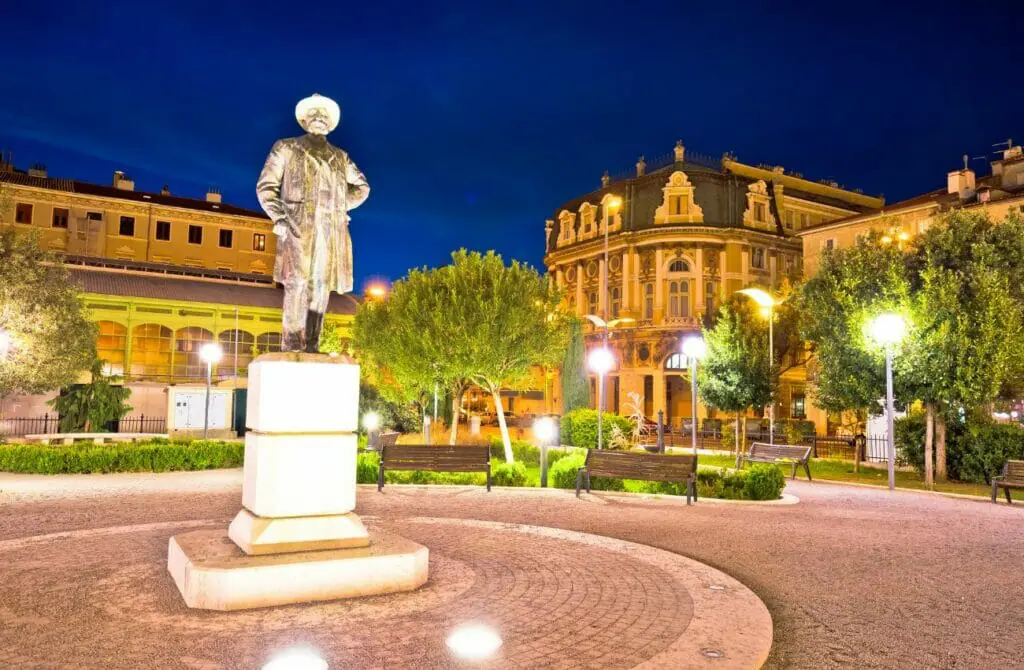
History Of LGBT Rights In Croatia
The history of LGBT rights in Croatia has experienced significant changes over the past few decades. During the period when Croatia was part of the Socialist Federal Republic of Yugoslavia, male homosexual acts were made illegal and punishable with up to two years of prison. However, after gaining independence, Croatia began to shift its stance on LGBT rights.
In 2003, homosexuality was decriminalized, and anti-discrimination laws were implemented to provide protection to the LGBT community. These laws included protection against discrimination on the grounds of both sexual orientation and gender identity in various aspects of life, such as employment and housing.
Civil unions were introduced in Croatia in 2014, granting same-sex couples some rights similar to those of married heterosexual couples. Despite this progress, in 2013, a referendum defined marriage as a union between a man and a woman, effectively banning gay marriage.
While local LGBT individuals in Croatia have experienced gradual improvements in their rights, tourists should be aware that the situation may not be the same everywhere. It’s essential to remain vigilant, as bad actors exist in all countries, and situations can change quickly. Always seek current advice before traveling and be cautious in unfamiliar surroundings.
Several organizations are dedicated to advocating for LGBT rights in Croatia. These groups raise awareness about LGBT issues and take steps to ensure that both residents and tourists are protected from discrimination and harassment. By staying informed and connected with these organizations, travelers can better protect themselves and stay updated on the latest changes in the country’s stance on LGBT rights.
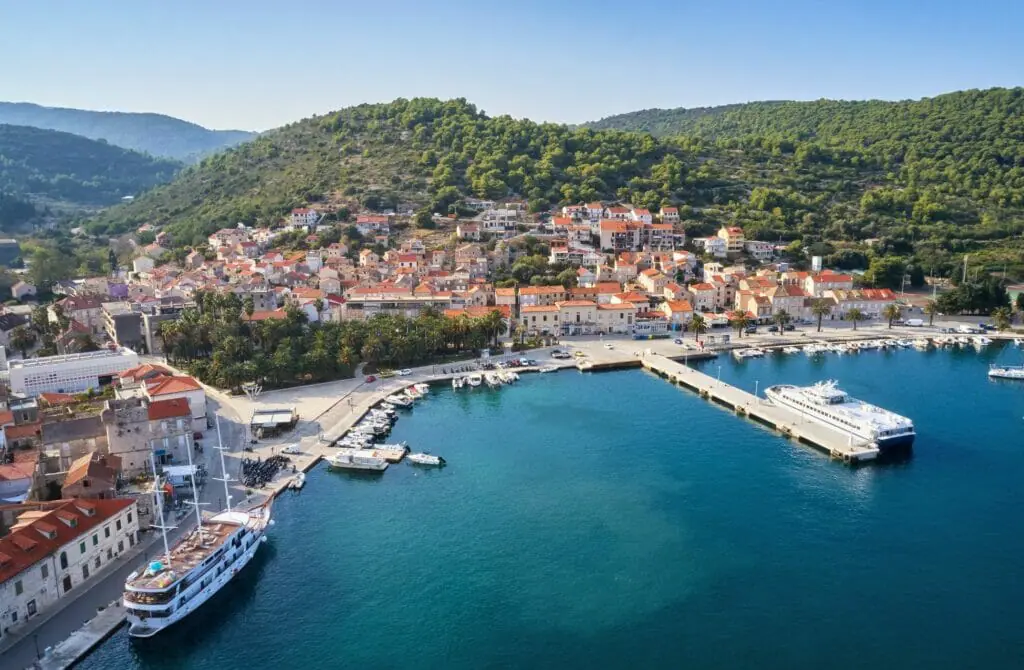
The LGBT Legal Situation In Croatia
Croatia has made significant progress in recent years with regard to LGBT rights. Sexual orientation, gender identity, and gender expression are all protected from discrimination, and homosexuality is legal. Despite these advancements, the majority of the Croatian population remains strongly influenced by the conservative views of the dominant Catholic Church, which can sometimes be perceived as discriminatory toward LGBTI communities.
For local residents, legal progress includes the availability of civil unions for same-sex couples, as well as the ability to change one’s gender legally without the requirement of surgery. On the other hand, non-binary gender recognition is not legally recognized in the country. When it comes to the rights of tourists, they can generally expect similar treatment as local people under Croatian law.
That being said, it’s essential for both local people and tourists to remain aware of the current legal situation, as it can change rapidly, and information can be outdated. Always seek the most up-to-date advice before making decisions or traveling. Furthermore, be mindful of the fact that there are always bad actors in every country, so remaining vigilant and cautious is essential.
In case of any issues or the need for support, there are several LGBT advocacy groups in Croatia that can provide assistance or guidance. Some of these include the Zagreb Pride organization, the Rainbow Families Association, and Centre for Civil Courage.
Remember, the situation for LGBT rights in Croatia can change, and although advancements have been made, always exercise caution and stay informed. Seek current advice before traveling, and engage with local LGBT advocacy groups if necessary. Stay excited about the progress, but also be conscious of the potential risks present in any situation.
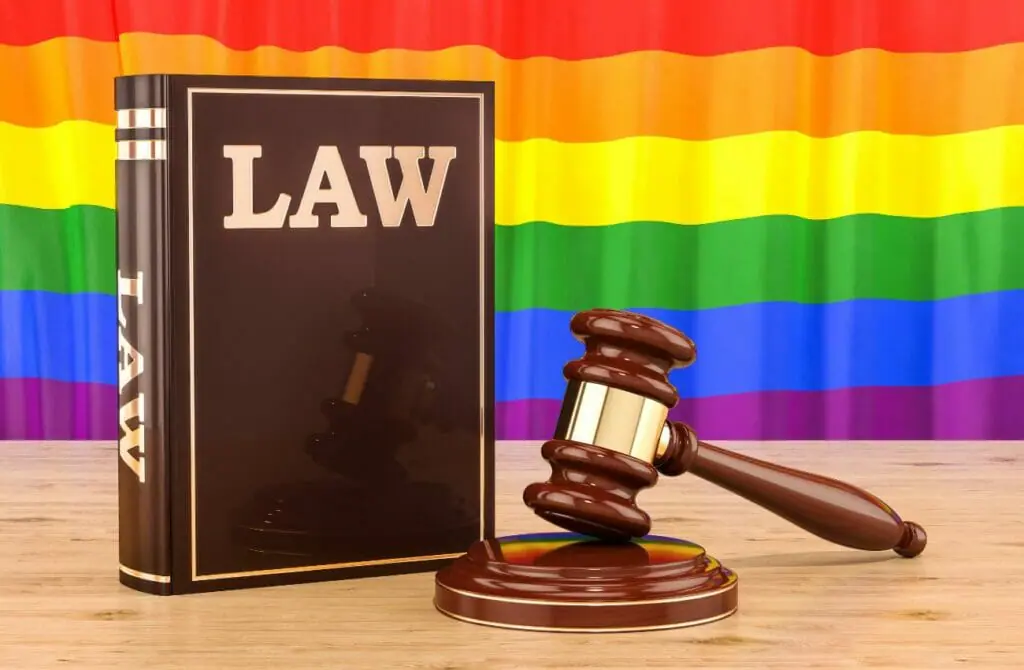
The LGBT Social Situation In Croatia
As of now, Croatia has made significant progress in ensuring LGBT rights for its residents. Legal recognition of same-sex unions as family unions, the right to apply for foster care, and expanding access to IVF treatments are some of the significant changes that have taken place in recent years. However, there still remain legal challenges that LGBT people face, including that same-sex marriage is not yet officially recognized.
Despite the legal advances, the social situation for LGBT individuals can vary, as is the case in many countries. Although homosexuality is legal, and discrimination based on sexual orientation and gender identity is illegal in various aspects, such as housing and employment, public opinion remains divided. For instance, a 2015 Eurobarometer report concluded that only 48% of people in Croatia believe that gay, lesbian, and bisexual individuals should have the same rights as heterosexuals.
Tourists visiting Croatia may find popular destinations such as Zagreb and Dubrovnik more accepting. However, always remain vigilant and exercise caution, particularly in less urban areas, as public opinion varies considerably. As situations may change rapidly, it’s essential to stay informed and seek up-to-date advice before traveling to ensure a positive experience.
In Croatia, there are LGBT advocacy groups such as the Zagreb Pride organization that are actively working towards creating a more inclusive and equal environment. Staying connected to such groups can be beneficial for tourists and locals alike, as they ensure that you are aware of any changes in the social or legal landscape.
In conclusion, while Croatia has made tremendous improvements in LGBT rights in recent years, it’s vital to remain cautious and informed. The social situation is continuously evolving, and it’s essential to keep up to date and connect with advocacy groups and support networks to have a safe and enjoyable experience.
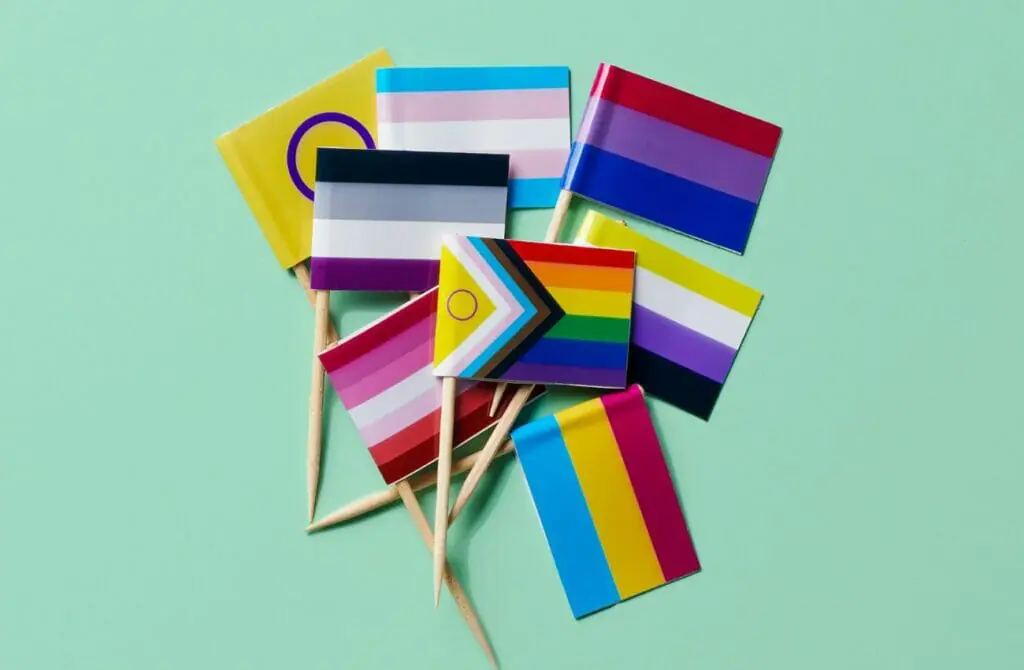
Trans Rights In Croatia
In recent years, Croatia has made significant progress in recognizing and advancing LGBT rights. However, transgender individuals still face challenges and discrimination that need to be addressed.
Transgender people in Croatia experience barriers to accessing gender-affirming medical care, which can greatly impact their health and well-being. While the legal process for gender recognition is in place, it requires a lengthy and bureaucratic process, which can be daunting for those seeking to affirm their gender identity.
However, local advocacy groups, such as Trans Aid Croatia, work tirelessly to support transgender individuals, providing resources, organizing events, and raising awareness about trans issues. If you’re planning a visit to Croatia and identify as transgender, it’s a good idea to connect with these organizations for updates on the legal framework and practical recommendations.
Tourists should be aware that attitudes towards transgender individuals can vary widely across the country. In urban areas such as Zagreb and Split, you may find more openness and progressive attitudes, while smaller towns and rural areas may be less accepting. Staying vigilant and connecting with the local LGBT community can help you navigate any potential challenges during your travels.
Keep in mind that situations can change rapidly, and available information may become outdated. Therefore, always seek current advice before traveling and remain cautious. Connect with local and international LGBT advocacy groups such as Zagreb Pride and ILGA Europe to stay informed and to better protect yourself if necessary.
Overall, being aware of the local context, engaging with local advocacy groups, and remaining vigilant will help ensure a safer and more enjoyable experience for transgender individuals visiting Croatia. Stay excited, but remember that it’s essential to stay informed and cautious in any country and situation.
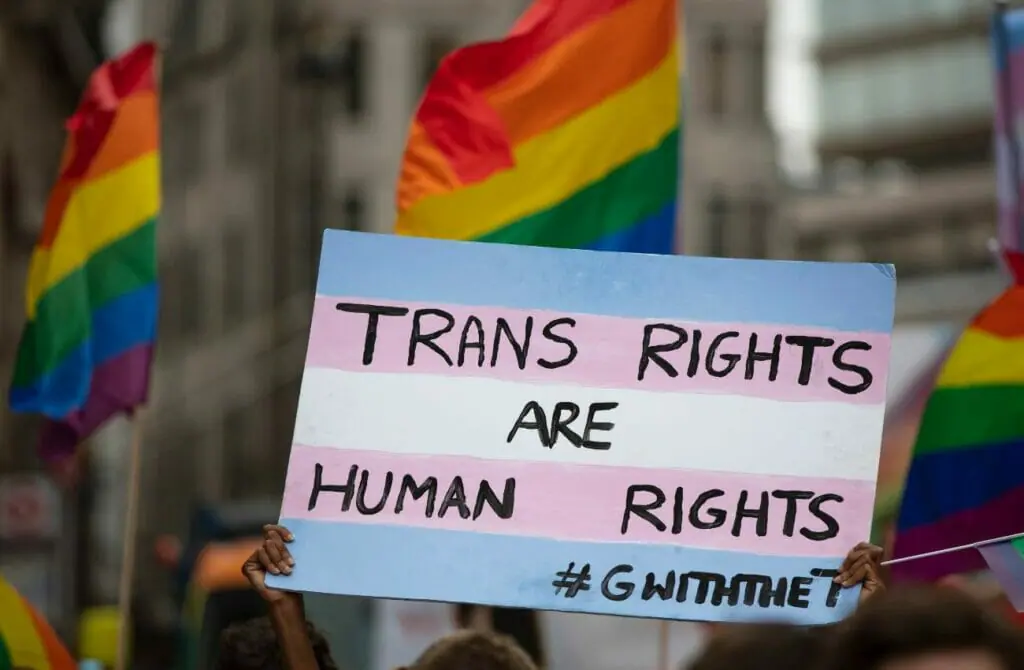

The Future For The Queer Community In Croatia
As Croatia continues to progress and become more inclusive, the future for LGBT rights in the country looks promising. Recent expansions of LGBTQIA+ rights have improved the lives of both locals and tourists, but there remains room for growth to ensure full equality and acceptance.
For local LGBT individuals, the introduction of multiple bills in 2023 aimed to address issues such as same-sex unions, adoption rights, and easier legal gender changes, which will, if passed, significantly impact their daily lives. Tourists in the country can expect a relatively safe experience, though incidents might still occur. Croatia ranks #73 of 124 regions in the perception of being a “good place” for gay and lesbian individuals as of 2023.
To protect oneself as an LGBT traveler to Croatia, it is advised to remain vigilant and cautious. Always be aware of the possibility that situations can change rapidly and information could be outdated. Staying updated on current advice and consulting with LGBT advocacy groups or local associations can be helpful when planning a trip. Some credible groups include the Friedrich Naumann Foundation, which actively works on LGBT rights in Croatia, and other local organizations that focus on the improvement of the LGBTQIA+ community.
While the overall situation in Croatia is on a positive trajectory for LGBT rights, it is essential for travelers to stay aware of their surroundings and mindful of their actions. By doing so, they can take part in and feel excited about the continued progress of the country and its embracing of a more diverse and inclusive future.
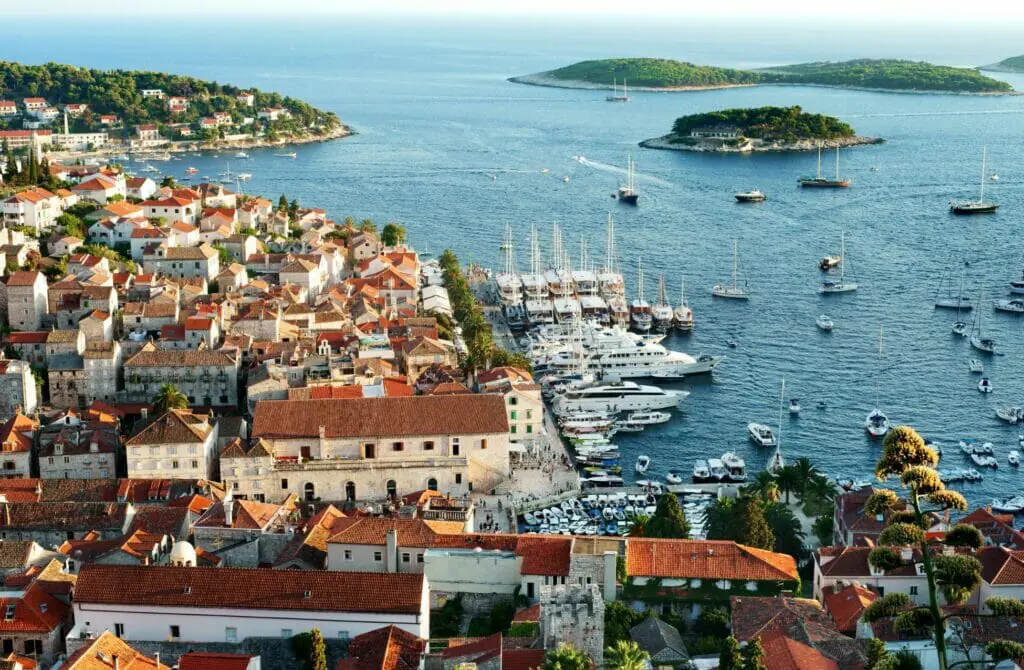
Protect Yourself While Travelling In Gay Croatia
As you explore the beautiful country of Croatia, it’s essential to be aware of the local context regarding LGBT rights and take the necessary steps to ensure your safety. While Croatia has made significant progress in the area of LGBT rights, the situation varies depending on the location and individual views. For local LGBT individuals, progress made in recent years has led to legal recognition of same-sex relationships, protection from discrimination, and more inclusive laws. However, for tourists, it’s essential to exercise caution and remain vigilant as not everyone may be as open-minded.
To protect yourself and have an enjoyable trip, here are a few steps you can take:
- Educate yourself about the local customs and general attitudes towards the LGBT community in the area you’re traveling to. This will help you gauge the kind of behavior that might be accepted or frowned upon.
Connect with local LGBT advocacy groups and organizations to gather the latest information on safety, events, and support services. Some notable groups include Kontra, Iskorak, and Zagreb Pride, among others.
Be cautious with public displays of affection, as attitudes towards the LGBT community may vary among the locals. Avoid engaging in any behavior that might draw unwanted attention or confrontations.
Stay updated on the latest developments in LGBT rights in Croatia, as the situation can change quickly. Be sure to seek current advice and information before traveling to ensure you’re aware of any changes in legal protections or social attitudes.
Remember, while Croatia has made significant strides in advancing LGBT rights and is generally considered safe for LGBT individuals, it’s crucial to exercise caution, as there are always bad actors in every country. By staying informed, connected with local advocacy groups, and exercising vigilance, you can safely explore and experience Croatia’s diverse and vibrant culture.
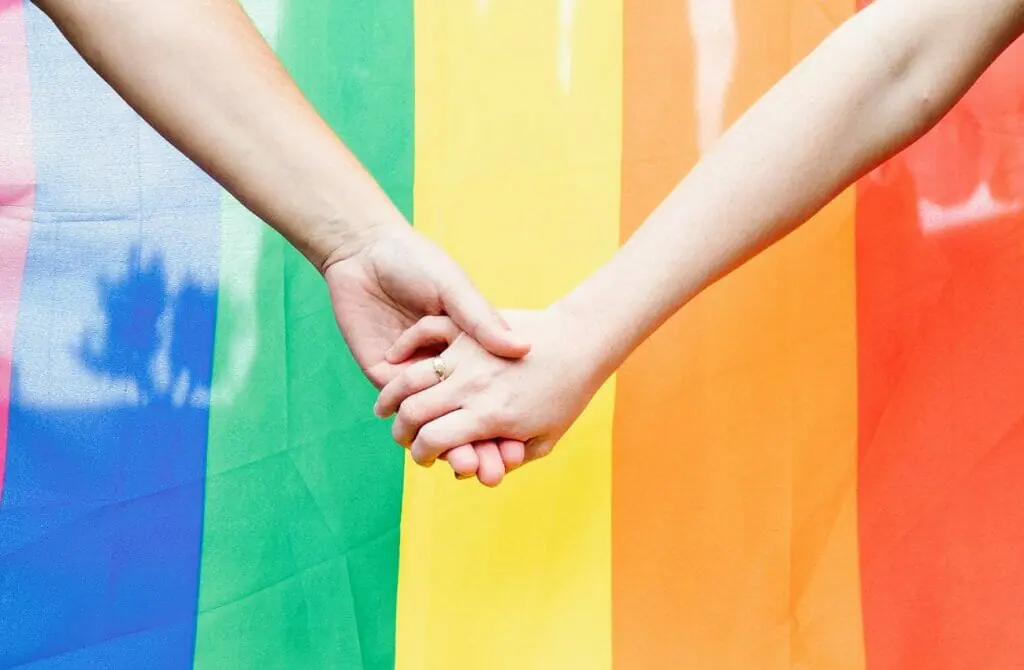

Best Gay Destinations In Croatia
Greetings, passionate voyagers of the globe! If you’re on the hunt for an untouched European paradise, look no further than the sparkling coasts and ancient cities of Gay Croatia. This Adriatic jewel, with its meld of timeless tradition and burgeoning LGBTQ+ acceptance, has rapidly ascended the ranks to stand tall among the best gay destinations in Croatia.
As we unfurl the map to this Balkan beauty, we’ve chosen to list these cities alphabetically, ensuring that every gem shines bright, free from the constraints of a ranking system, echoing the spirit of equality that we champion.
Dive deep with me into the heart of Gay Croatia, where every stone, wave, and whisper tells tales of love, courage, and transformation. From the echoing walls of Dubrovnik to the bustling squares of Zagreb, every corner of Croatia pulsates with an allure that’s both ancient and refreshingly new. Adventure awaits, so let’s embark on this unforgettable journey together!
Darlings, let’s jet to Dubrovnik—a European jewel where ancient walls meet azure waters and where gay travelers revel amidst the unique blend of tradition and progress. While Gay Dubrovnik shimmers with gay-friendly beaches and an international allure, remember to navigate this Croatian gem with a touch of grace, cherishing its rich culture as you dance between its welcoming embrace and its storied past.
Honey, let me spill the tea on a Croatian gem often overshadowed by coastal dazzlers—meet Osijek! Nestled in Croatia’s verdant east, this majestic baroque beauty not only embraces its spirited Pride marches but also seduces with its lush landscapes, delectable cuisine kissed by fiery peppers, and a cafe culture so vibrant, you’d almost forget the tales of resilience whispered by bullet-marked facades. Dive deep into this hinterland haven, and let Osijek’s unexpected charm bewitch your queer heart!
if you’re seeking a blend of sun-kissed coastlines, rich history, and a pinch of discreet allure, Rijeka in Gay Croatia is your next must-visit gem. Nestled on the Kvarner Bay, this principal seaport serves as your stylish gateway to Croatia’s mesmerizing islands and ancient towns, and while the city’s gay scene may whisper rather than shout, it promises a tapestry of experiences for the discerning LGBTQ+ traveler with an itch for authentic adventure.
Honey, strap on your fiercest sandals and prepare to sashay through the cobblestoned lanes of Gay Split, where ancient grandeur meets a budding LGBTQ+ spirit! Marry the intoxicating charm of Diocletian’s Palace with a vivacious queer scene, and you’ve got Split—Croatia’s coastal darling that’s both a historical marvel and a beacon of queer promise, where every sun-kissed corner beckons with tales of resilience, splendor, and unapologetic fabulousness.
Darlings, let me spill the tea on a dazzling Adriatic gem—Gay Zadar! Marrying millennia of history with a pulsating LGBTQ+ heartbeat, Zadar is not only a masterclass in architectural marvels but a flamboyant dance of inclusivity, where every cobbled street and sun-kissed shore serenades queer souls with tales of acceptance and joie de vivre.
Honey, if you’re dreaming of a city where historical charm waltzes with modern queer spirit, strut your fabulous self to Gay Zagreb! Founded in the mesmerizing glow of the 11th century and oozing Austro-Hungarian finesse, this Croatian gem offers a dynamic LGBTQ+ scene nestled amidst cobblestoned tales, poignant museums, and a nightlife that promises endless enchantment.


